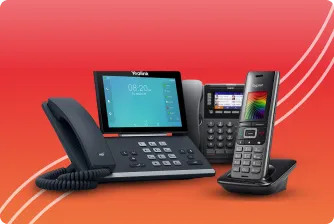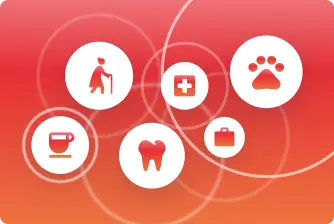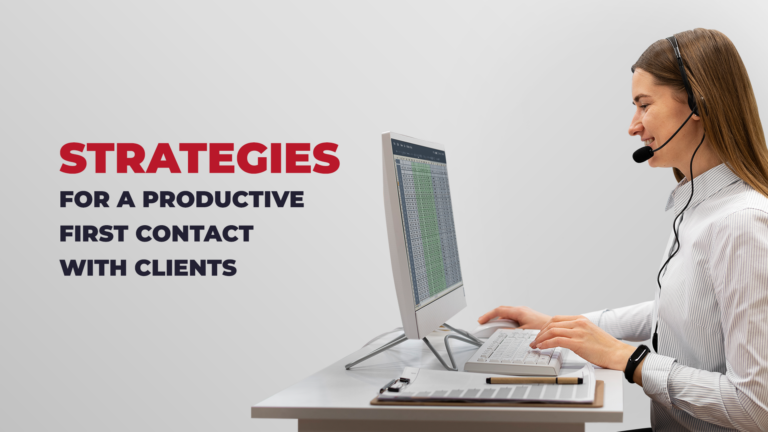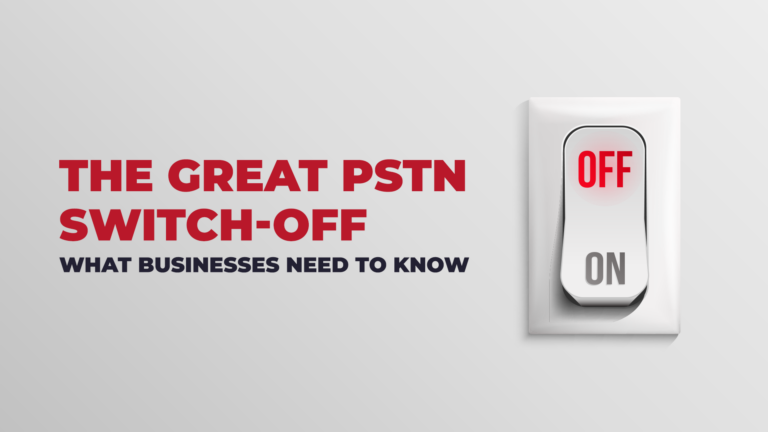Sales is a challenging and dynamic career that requires a wide range of skills to be successful. While understanding technical tools like CRMs and creating effective proposals are important, it’s also vital to develop (and keep developing) your fundamental sales skills. The right combination of technical and sales skills can make all the difference in connecting with potential customers, closing deals and building a successful sales career. In this blog post, we’ll be highlighting 8 essential sales skills that every sales professional should master. We’ll be looking into things like:
- Prospecting
- Effective Communication
- Product Expertise
- Active Listening
- Negotiation
- Time Management
- Networking
- Resilience
By mastering these skills, you’ll be able to increase your chances of success, regardless of your industry. Let’s dive in…
PROSPECTING
Prospecting is a critical skill for any sales professional to master. It allows you to connect and work with potential customers whose needs and interests align with your product or service offering. By identifying their pain points and understanding their goals, you can start a conversation that can lead to a sale.
However, it’s important to note that prospecting is a time-consuming process, but if done correctly, it can be extremely effective. Top-performing salespeople generate 3x more sales meetings from prospecting than those who don’t prospect at all.
One key aspect of prospecting is lead qualification. Not every lead is a good fit for your business, and it’s important to focus on leads that are most likely to convert. This means identifying leads that match your ideal customer profile and have a real need for your product or service.
For example, a salesperson at a software company specialising in project management software would want to target leads that are in the field of project management or have a need for software to manage their projects. By focusing on qualified leads, the salesperson can save time and effort, and increase their chances of closing a deal.
Prospecting also includes different ways of reaching out to leads, such as networking events, cold calling, emailing, or social media. It is important to use a mix of methods that work best for your industry and target audience. The key takeaway is to always be intentional in your prospecting efforts and to focus on leads that are most likely to convert.
A study by Hubspot in 2020 found that 55% of buyers identified “communication” as the most important factor when choosing a salesperson.
THE ART OF CONVERSATION
Effective communication is one of the most essential skills for a sales professional to master. The ability to gather and provide information in a way that makes your prospect want to do business with you is the foundation of sales success.
Whether it’s your value proposition, pricing, or product features, none of it matters unless you’re able to engage your prospects in effective conversation and listen to what they have to say.
To do this, it’s important to understand how your prospects learn, what they care about, and their preferred communication style. By understanding these factors, you can adapt your strategy accordingly and deliver your message in a way that resonates with your prospect. For example, if your prospect prefers visual aids, you can use infographics or videos to showcase your product. If they prefer to learn through case studies, you can provide real-world examples of how your product has helped similar companies.
But effective communication also involves active listening and empathy. By truly understanding your prospect’s needs, and showing that you care about their business, you can build trust and credibility with them.
For example, A Salesperson who is selling telephone and broadband systems could ask the prospect about their current telecoms, and the specific pain points they are facing. Listening actively to their answers and acknowledging their concern, rather than going straight into a sales pitch, and then proposing the solution that their product has to offer. Also, wherever applicable, offering a free trial or a proof of concept, proving how their product can help specifically to the customers’ concerns is a great way to build trust with them.
In conclusion, effective communication is not only about delivering a message but also actively listening and building trust. By understanding your prospect’s communication style, and adapting your message accordingly, you’ll be more likely to close a deal.
A study by Salesforce in 2018 found that reps who personalize their messaging to a prospect are 60% more likely to have a productive conversation.
KNOW WHAT YOUR SELLING
Product expertise is another crucial skill that a sales professional must master. Having a deep understanding of your product can give you a significant advantage over your competition. Consumers today have easy access to information, and they expect sales reps to know and understand their products inside and out. If you’re unable to explain the value and key features of your product, it’ll be difficult to convey this information to your prospects and close a sale.
As a salesperson, you must be an expert in every single product you’re selling, including features, technical specifications, fitting specifications, upgrades, and costings. You should also be familiar with any competitor’s products or services, and be able to articulate how your product is different and better.
For example, a salesperson for a car dealership needs to know everything about the cars they’re selling, including the features, technical specifications, pricing, financing options, and warranty. They should also be able to compare their cars to similar models from other manufacturers, highlighting the features that make their cars stand out.
Being an expert in your product also means you can answer any question that a prospect might have with complete confidence. This alone will instil confidence in the prospect that you know your product and that you can support them in the future. Furthermore, it also shows the customer that you are passionate about the product you are selling and that you believe in it.
In conclusion, It’s important to know and understand your product inside and out, so you can effectively communicate its value and key features to your prospects, and close more deals.
According to a study by Inside Sales in 2019, salespeople who used video in their sales process increased their chances of closing a deal by 20%.
LISTEN… ACTIVELY
We’ve already touched on effective listening skills a bit – but that’s just how important it is. Active listening in particular is an important skill for any sales professional to master. It involves fully focusing on what the prospect is saying, without interruption, looking between the lines, and understanding their needs, concerns, and pain points. This can be a difficult task when you’re trying to hit your sales targets and close a deal, but it’s essential if you want to build a relationship with your prospects and increase your chances of closing a sale.
When you’re actively listening, you’re able to gather valuable information about the prospect’s business, which can help you to tailor your approach and provide a more relevant solution. It also allows you to ask the right questions that add value to the conversation, and demonstrate that you’re fully engaged with their needs.
For example, a Salesperson that is selling CRM software can ask the prospect about their current CRM system, if they have one, and the specific pain points they are facing. Listening actively to their answers, and acknowledging their concern, rather than going straight into a sales pitch, and then proposing the solution that their CRM software has to offer.
It’s important to note that active listening should be used in conjunction with other skills such as effective communication, product expertise and time management. By focusing on your prospect’s needs, and adapting your approach accordingly, you’ll be more likely to close a sale.
In conclusion, by truly understanding your prospect’s needs and showing that you care about their business, you can build trust, gather valuable information, and increase your chances of closing a sale.
A study by the Sales Management Association conducted in 2017, found that companies with a formal sales process in place were more likely to exceed their revenue goals.
THE ART OF NEGOTIATION
Negotiation is an art form that requires a deep understanding of the customer, your product, and the industry. It’s an essential skill for a sales professional to master as it allows you to close deals and increase revenue. The ability to build rapport, find common ground, and understand the other side’s needs and objectives is key to successful negotiation.
An example of this is a salesperson for a manufacturing company that is trying to sell new machinery to a factory. The factory manager has a budget constraint, and the salesperson is trying to close a deal for the machinery. By understanding the factory manager’s needs, budget, and constraints, the salesperson can negotiate a deal that is beneficial for both parties.
They might suggest financing options or propose a trial period before committing to a purchase, or they could offer package deals that include additional services such as maintenance or training. By being creative and adaptable, the salesperson could close a deal that satisfies both parties.
It’s also important to be able to handle objections and be able to come up with counterarguments. Good negotiators are able to anticipate and handle objections while being able to remain calm and professional. Additionally, they are able to walk away from a negotiation if it’s not beneficial for the company and move on to other opportunities.
In conclusion, it requires understanding the customer, product, and industry, building rapport, and finding common ground to close deals and increase revenue.
A study by HubSpot in 2019 found that sales reps who use sales enablement tools increase their productivity by 14.6%, compared to reps who don’t use them.
MANAGE YOUR TIME WISELY
Time management is an essential skill for a sales professional to master. It allows you to prioritize your tasks, manage your time effectively and hit your sales targets. With the fast-paced nature of sales, it’s easy to get caught up in the day-to-day hustle and lose sight of your long-term goals. By mastering time management, you can stay focused on the tasks that will help you to close deals and increase revenue.
One important aspect of time management is setting goals and breaking them down into smaller, actionable tasks. For example, a salesperson might set a goal to generate 10 new leads per week. To achieve that goal, they might need to prospect for new leads by attending networking events, making cold calls or sending out emails. By breaking down their goal into smaller tasks, they can prioritize their activities and focus on the ones that will have the most impact.
Another important aspect of time management is the ability to prioritize tasks, by evaluating the importance and urgency of each task and focusing on the most important ones first. A salesperson might need to prioritize their time by focusing on following up with hot leads first, instead of spending too much time on administrative tasks.
For example, A salesperson that is trying to hit a quarterly sales target, they have limited time, and they need to ensure that they are spending their time on the right tasks to hit the target. They could use a time management tool, like a calendar or to-do list, to plan out their day, and schedule time for prospecting, follow-up, and administrative tasks. By having a clear plan and sticking to it, they can stay on track and hit their sales targets.
In conclusion, good time management allows you to prioritize your tasks, manage your time effectively and hit your sales targets. By setting goals, breaking them down into smaller tasks, prioritizing and using time management tools, you can stay focused on the tasks that will help you to close deals and increase revenue.
A study by Harvard Business Review in 2019 found that sales reps who prioritize their time by focusing on the most high-value activities are 14.6% more likely to achieve their sales targets.
IT’S WHO YOU KNOW
Networking is an essential skill for a sales professional to master. It allows you to expand your professional network, gain new leads and close more deals. Sales is all about building relationships, and networking is a great way to do that. By connecting with other professionals in your industry, you can increase your visibility, gain new perspectives and learn about new opportunities.
For example, a salesperson in the real estate industry could attend local events, such as networking mixers, where they can connect with other agents, developers, and industry professionals. By building relationships with these people, they can learn about new development projects, gain access to potential clients, and even find new teaming partners to work with.
Networking can also be done online, using social media platforms, industry forums and LinkedIn. By actively engaging in online communities and connecting with other professionals in your industry, you can increase your visibility and learn about new opportunities. By leveraging online networks and building relationships, you can gain new leads, close more deals and expand your reach.
Moreover, networking can also provide valuable resources, such as knowledge, advice and industry insights that can help you to improve your skills and make better decisions. This can also be a great way to stay informed about the industry trends and changes that can help you to position your product or service better.
A study by LinkedIn in 2019 found that 91% of sales reps who consistently hit their quotas use social selling.
BE ADAPTABLE
Adaptability is an important skill for a sales professional to master. Being able to adapt to changing situations, customer needs and market conditions is essential for closing deals and achieving success in sales. This means being open to new ideas, flexible in your approach and ability to think on your feet.
For example, a salesperson for a technology company is trying to sell new software to a customer. During the sales process, the customer expresses concern about the software’s compatibility with their current systems. Without adaptability, the salesperson might have ended the conversation, thinking that the deal was lost. But with adaptability, the salesperson can quickly pivot, and come up with a solution that addresses the customer’s concern, such as offering a free compatibility test or a trial period to demonstrate how the software will work with their current systems.
Adaptability also means being able to adjust your sales pitch depending on the customer’s needs and level of understanding. Some customers might require more technical details, while others might be more interested in the product’s features and benefits. A salesperson must be able to read the customer’s level of understanding and adjust their pitch accordingly, in order to effectively communicate the product’s value proposition.
Furthermore, adaptability also means being able to change your approach when things aren’t working. If a particular sales strategy isn’t delivering results, salespersons must be able to recognize this and adapt their approach in order to improve their chances of closing a deal.
In conclusion, adaptability is an important skill for a sales professional. Being able to adapt to changing situations, customer needs and market conditions is essential for closing deals and achieving success in sales. It requires the ability to think on your feet, pivot and adjust your approach when things aren’t working, and effectively communicate the value proposition to different types of customers.
A study by Salesforce in 2020, found that sales teams that use AI-powered sales tools and technologies were 45% more likely to hit their revenue goals than those that don’t.
CONCLUSION
In conclusion, becoming a successful and effective salesperson requires mastering a range of skills. From prospecting and effective communication to product expertise and active listening, these skills are essential for building relationships with prospects, understanding their needs, and closing deals. In addition, networking, negotiation, time management and adaptability are also important skills for expanding your reach, navigating through challenges and increasing revenue. By focusing on these skills, and constantly working to improve them, you can increase your chances of success in a sales career. It’s important to remember that mastering these skills takes time and practice, but with dedication and perseverance, you can become a top-performing sales professional.
Here at Yo, we’re all about improving the success of the businesses we deal with. So, If you are interested in learning more about sales, improving your business development, or generally future-proofing your business – enter your contact details into the form below and we’ll be in touch with how we can help you and your business TODAY!











